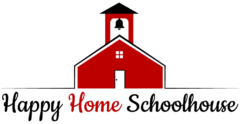This post contains affiliate links and we may earn a commission when you click on the links at no additional cost to you. As an Amazon Affiliate, we earn from qualifying purchases.
Our top picks for the best homeschool math curriculum for 4th grade:
- Best Overall Program: Singapore Math Primary Mathematics
- Best Traditional Program: Saxon Math
- Best for Visual and Kinesthetic Learners: Math-U-See
- Best Charlotte Mason-style: Math Lessons for a Living Education
- Best Story-Based Program: Life of Fred Elementary Series
- Best Montessori Approach: Shiller Math
Are you homeschooling a fourth grader and looking for the right math curriculum? Fortunately, there are many great options to choose from. In this article, we’ll tell you about some of our favorites, outlining the differences between them so you can choose which one is right for your child! And if your child struggles with math, check out our article Best Homeschool Math Curriculum for Struggling Students – Elementary. For our fourth-grade math top curriculum picks, keep reading!

Best Overall Program
Singapore Math Primary Mathematics
If you’re looking for a user-friendly, excellent homeschool math program, we recommend the Singapore Math Primary Math series. This curriculum follows the approach used to teach math in Singapore, where students have historically boasted the highest math scores in the world. The program uses a unique “concrete to pictorial” approach, wherein students are taught concepts first in a hands-on, concrete form (such as with manipulatives), then in a pictorial form (such as with diagrams or drawings), then in a more abstract/symbolic way (such as a math equation). This approach helps build a solid foundational understanding of the concepts being taught.
The primary focus of Singapore Math, and one of the reasons we love this curriculum, is its focus on providing a deep understanding of mathematical concepts through problem a problem-solving and visualization-oriented approach. Kids don’t just learn how to do a math problem correctly; the emphasis is on making sure the student understands the actual concepts behind that problem. For example, any math program might teach a student how to multiply 3 x 4, or 4 x 3, and students might learn that the answer to both problems is the same (12). With Singapore Math, however, students learn what such an equation actually represents: 3 x 4 means three sets of four, which is different from 4 x 3, which means four sets of three. This kind of conceptual understanding of math is especially useful in preparing students to learn more complex math down the road.
The Primary Math program includes several different versions, including one aligned with California state standards. A new 2022 edition is also available, which is more colorful than the traditional version, but we prefer the traditional U.S. edition for its simplicity and straightforward approach. The grade 4 set includes the textbooks and workbooks for the entire school year. You’ll also need to purchase the Home Instructor’s Guide 4A and Home Instructor’s Guide 4B.
Best Traditional Program
If you’re looking for a traditional, tried-and-true math curriculum, you can’t go wrong with Saxon Math. Designed by John Saxon, this is by far the most popular math program among homeschoolers, largely because of its incremental approach to teaching math. The program teaches math concepts step-by-step, helping students to reinforce and solidify their understanding before moving onto more complex topics.
Saxon Math is very “user-friendly” for both students and parents. Each lesson includes a significant amount of review problems from previous lessons to ensure that students retain and reinforce what they have learned. The program incorporates distributed practice, which means that concepts are revisited throughout the curriculum to reinforce long-term retention. Regular and cumulative assessments are also included to measure student progress.
The lessons in Saxon Math are easy to follow and typically use a consistent format, including a warm-up, new concept introduction, practice problems, and a mixed practice section that combines various topics. The program also incorporates manipulatives, such as counters, blocks, and geometric shapes, to provide hands-on learning experiences and help students visualize mathematical concepts.
If you’d like to try Saxon Math with your fourth grader, we recommend purchasing the Saxon Math 5/4 Homeschool Kit, which includes the textbook, a test and worksheets book, and a solutions manual. If your student learns well through video, consider purchasing the homeschool kit with the Teaching Tape DVDs, which features a certified teacher guiding students through each lesson.
Best for Visual and Kinesthetic Learners
If your student struggles with traditional math programs but does well with visual, hands-on learning, you might want to consider the Math-U-See program. Developed by Steve Demme, this program is known for its unique teaching approach that combines manipulatives, instructional DVDs, and textbooks. At the center of the program’s effectiveness is its unique manipulative kit, known as the integer block kit. This kit is used throughout every level of the program and is central to demonstrating math concepts in a sensory, concrete way that helps kids learn quickly.
Another key feature of the program is its structured, mastery-based approach. Each level of the curriculum systematically focuses on different concepts, helping students to fully understand and demonstrate proficiency in those concepts before they move on to more complex ones. An especially fantastic feature of this program is the video lessons provided by Steven Demme, the program’s creator. These lessons demonstrate the concepts being taught and help students to master each topic in an understandable and engaging way.
Overall, Math-U-See is recognized for its hands-on, visual, and sequential approach to teaching math, making it appealing to homeschool parents seeking an alternative to traditional curriculums. Most fourth-grade students use either the Gamma or Delta levels of this curriculum. The Gamma level focuses on mastery of multiplying single- and double-digit numbers. Some instruction in time, currency, fractions, and measurement is also included. In the Delta level, students master division of single- and double-digit numbers, with other topics also introduced. All levels and the integer block kit are available for purchase at Christian Book.
Best Charlotte Mason-style
Math Lessons for a Living Education
If you’re looking for a gentle and holistic homeschool math program that embodies the ideals of a Charlotte Mason education, consider Math Lessons for a Living Education by Angela O’Dell. Following the adventures of the fictional characters Charlie and Charlotte, this program uses a story-based approach to engage students in the learning process. Charlie and Charlotte encounter real-life situations where mathematical concepts are applied, helping students understand how math is meaningful and relevant to their lives.
We love that this curriculum incorporates lots of hands-on activities and interactive components to reinforce learning. This might involve using manipulatives, playing games, or participating in real-world projects that involve math. Furthermore, rather than focusing on rote memorization or formulas and procedures, this program encourages students to think critically and problem solve, helping them foster a deeper understanding of math concepts. Concepts are taught incrementally, with each lesson building on the foundations laid in previous ones. And best of all, this program is teacher-friendly, with clearly structured lesson plans and lots of parental guidance on how to help our kids understand the material.
Please note that this program does advance a Christian worldview and Biblical principles are incorporated into the lessons. If you are wanting a secular curriculum, you still may be able to adapt this one for your family’s needs, but you’ll want to further research the program first.
If you’d like to try this curriculum with your fourth grader, you’ll need to purchase Math Lessons for a Living Education Level 4. For more practice opportunities, try the Practice Makes Perfect Level 4 book (Christianbook).
Best Story-Based Program
Life of Fred Elementary Series
If your child struggles with traditional math programs, you might want to consider the popular Life of Fred series. Written by Dr. Stanley F. Schmidt, the series follows the life of a fictional character named Fred Gauss, a young math genius who encounters various math concepts in everyday life. The books are designed to integrate math into a storyline, making it more engaging and applicable to real-life situations. Within this narrative format, the curriculum provides problems and exercises to reinforce learning, and students are encouraged to solve them as they progress through the story.
This series covers a wide range of math topics, with each book intended to be a self-contained unit that introduces and explores a specific mathematical concept. If your fourth grader is starting Life of Fred for the first time, you’ll want to begin with the Elementary Set 1, which includes the first four books in the elementary series. Each of these books is designed to take about one month to complete, so your student will likely be ready for the Elementary Set 2 while still in fourth grade.
Best Montessori Approach
If you’re looking for a truly self-paced, Montessori-style approach to math instruction, consider the wonderful Shiller Math program. This curriculum incorporates short, simple lessons and hands-on, tactile interaction with manipulatives to give students a deep understanding of math concepts. The program uses visual, tactile, auditory, and kinesthetic teaching methods to engage students with different learning styles. And rather than simply moving from lesson to lesson, parents carefully observe their children’s understanding of the material and decide when they are ready to advance to the next topic. The lessons themselves are clearly structured and easy for parents to follow, and there are plenty of opportunities for further practice.
If you’d like to try Shiller Math with your fourth grader, you’ll want to get the Kit 2 Basic Set, which includes the lesson books, answer guides, parent guide, audio CD with math songs, and most of the manipulatives needed for the course.
Conclusion
There are several excellent options to choose from when it comes to homeschool math curriculums for fourth graders. Be sure to check out our other math curriculum picks here!
